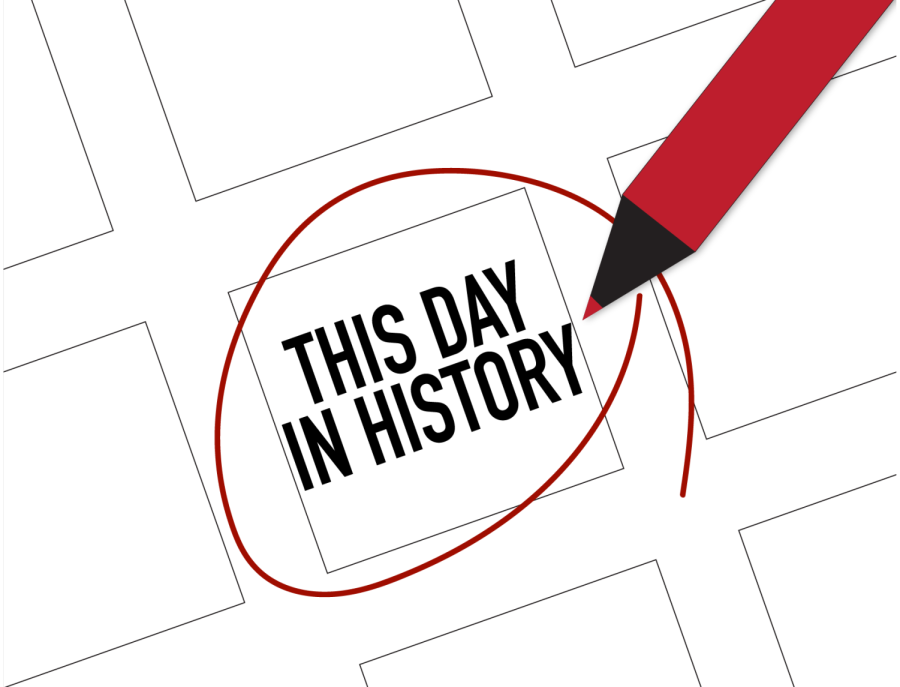Aug. 29, 1533: Inca Emperor Atahualpa is executed by Spanish conquistadors.
Atahualpa was born to Inca emperor Huayna Capac and an Ecuadorian princess in 1502. He ruled as the 13th emperor of the Incas following a long and brutal civil war against his older half-brother, Huascar, their father’s legitimate but less favored heir. Atahualpa’s army defeated Huascar in 1532 and he had him and his family executed. Soon afterward, the forces of the Spanish conquistador Francisco Pizarro Gonzales arrived in Inca territory and ambushed the emperor in the city of Cajamarca after inviting him to a feast in his honor. After extorting the Inca for 24 tons of gold and silver, the largest recorded sum ever received as ransom in history, the Spanish ordered his execution. After being given the choice between being burnt at the stake as a heathen – which, by Inca belief, would prevent his soul from going to the afterlife – or death by strangulation if he converted to Christianity, Atahualpa converted, was given the name Francisco Atahualpa in honor of Pizarro and was executed by garrote.
Aug. 30, 1836: The City of Houston was founded by brothers Agustus Chapman and John Kirky Allen.
Named after Sam Houston, the first president of the Republic of Texas, Houston was founded as a commercial town. Primarily a shipping port, the first railroad arrived in Houston in 1853. After the American Civil War, Houston thrived as a railway center and became Texas’ leading port after Galveston Port was destroyed by a hurricane in 1900. Houston saw rapid growth following World War II and today is the fourth most populated city in the United States and the most ethnically diverse metropolitan area in the country.
Aug. 31, 161: Roman Emperor Commodus was born.
Featured as the antagonist in Ridley Scott’s “Gladiator” (2000), Commodus has gone down in history as a bad emperor whose reign destroyed decades of Roman prosperity and led to a civil war. Born Lucius Aelius Aurelius Commodus in 161 to Emperor Marcus Aurelius, Commodus modeled himself after the god Hercules and often participated in gladiatorial combat in the Colosseum to show off his physical prowess. He renamed the city of Rome after himself and was fond of executing his enemies, friends and family. He was assassinated in 192 C.E. at age 31 by Narcissus, a famous wrestler hired by his own officials. After his death, the Roman senate decreed “Damnatio Memoriae,” a procedure designed to remove bad emperors from the historical record and public memory.
Sept. 1, 1939: Nazi Germany invaded Poland.
Despite Adolf Hitler signing a non-aggression pact with Poland in 1934 and the 1938 Munich Agreement, which gave Germany the territory of Sudetenland in exchange for no more territorial demands, Nazi Germany withdrew from the non-aggression pact in 1939 and invaded Poland. Polish forces were defeated quickly and the country was divided between Germany and the Soviet Union, with whom Hitler had also signed a non-aggression pact that he went on to break in 1941. Having sworn to defend Poland’s borders, France and Britain declared war on Germany following the invasion of Poland and commenced the Second World War.
Sept. 2, 1820: Jiaqing Emperor of the Qing dynasty, died.
Born Yong Yan, the Jiaqing Emperor ascended to the Qing throne in 1796 after the abdication of his father, the Qianlong Emperor, although he did not assume control until his death in 1799. During his reign, he battled the White Lotus Rebellion, which broke out in Central China in 1796 and lasted until 1804 and the Miao Rebellion, which broke out in South China in 1795 and lasted until 1806. These civil conflicts destabilized the country and damaged the standing of the Qing. The Jiaqing Emperor also tried to fix the finances of the imperial treasury and to stop the smuggling of opium into China, but he was not very successful and was disliked by commoners and nobility alike. He died at the age of 59 in 1820.
Sept. 3, 1838: Frederick Douglass escaped from enslavement.
Born Frederick Augustus Washington Bailey in February 1818 in Maryland, Douglass was raised by his maternal grandmother Betsey, who was responsible for raising enslaved children. While enslaved in Baltimore as a young adult, he was hired out to shipyards by his enslaver, where he gained key skills he would later use to escape. On Sept. 3, 1838, Douglass disguised himself as a sailor and took a train from Baltimore to Delaware, then a steamboat to Philadelphia and finally another train to New York City. To help him make his journey, he carried with him identification papers given to him by a Black sailor that granted him protection. After gaining freedom, Douglass dedicated his life to the abolitionist movement, becoming an activist, novelist and orator. He passed away in his home in Washington, D.C., on Feb. 20, 1895, at age 77.
Sept. 4, 1998: Google, Inc. was founded by Larry Page and Sergey Brin.
Co-founders Page and Brin met as Computer Science Ph.D. students at Stanford University, where they started their work on developing a search engine that listed websites by the number of links they contained, as opposed to how often the searched words showed up in the site. This search ranking algorithm is called PageRank, named after Page. The name Google comes from the word googol, meaning ten raised to the power of a hundred. A parent company, Alphabet Inc., was founded in 2015 to manage Google and its subsidiaries. Today, Google is the most used search engine in the world. Page and Brin stepped down from their executive positions in 2019, but remain shareholders and board members of Alphabet.
Sept. 5, 1977: NASA launched Voyager 1.
The Voyager probes were designed to explore Jupiter and Saturn, although they have since exceeded their mission goals and have gone on to study Uranus, Neptune and beyond. As of Sept. 5, 2023, Voyager 1 has been in operation for 46 years. It crossed into interstellar space in 2012 and has reached the farthest distance from Earth ever reached by any spacecraft. Some of Voyager 1’s notable discoveries have been a thin ring around Jupiter, the moons Metis and Thebe orbiting Jupiter, 5 moons orbiting Saturn, the G-Ring of Saturn and the moon Titan’s nitrogen atmosphere.









